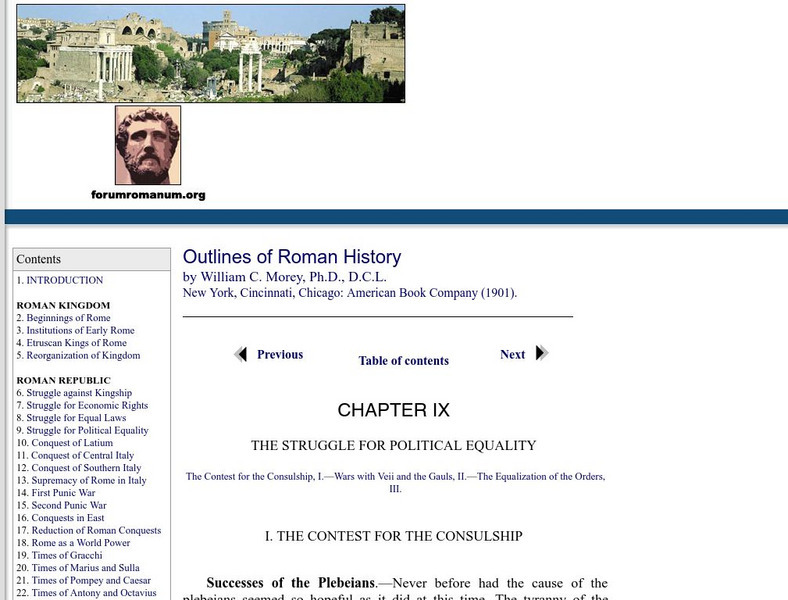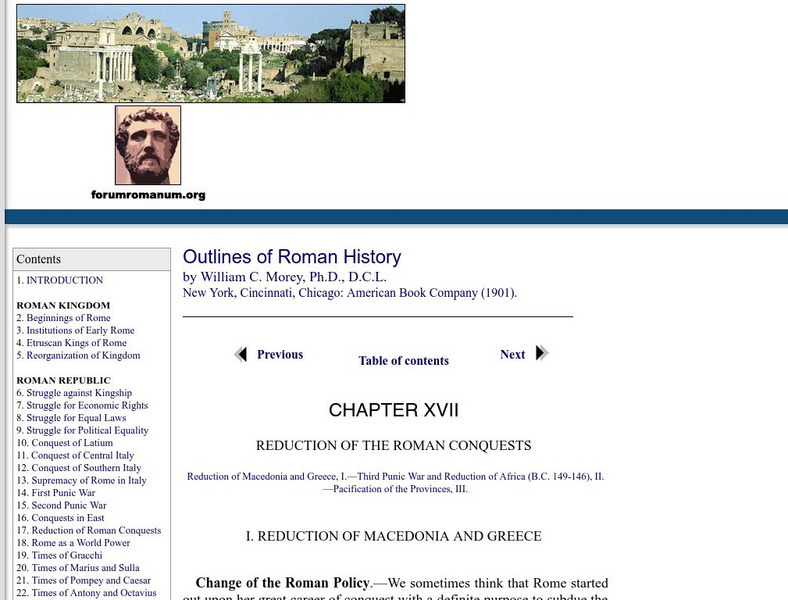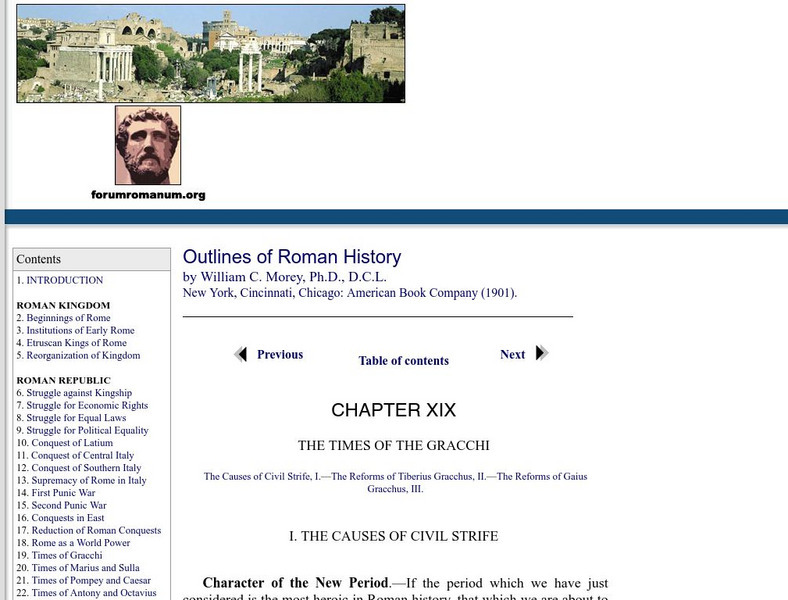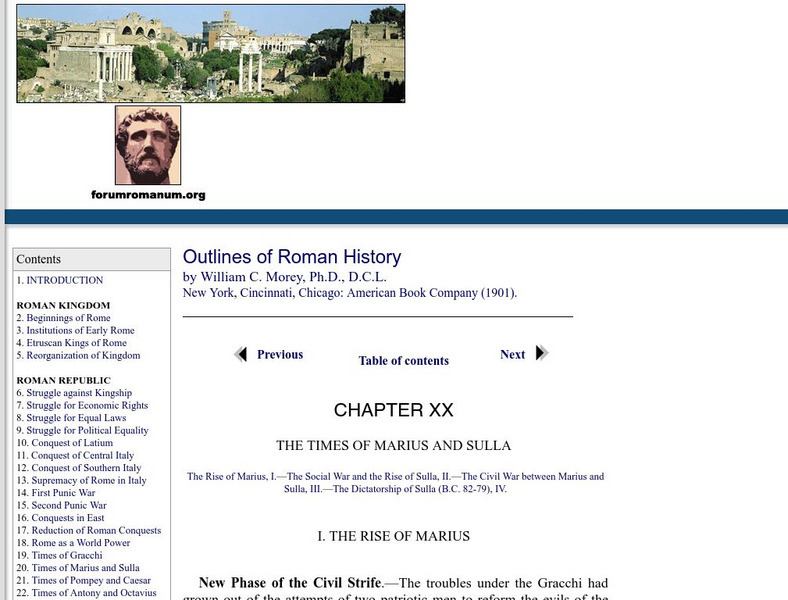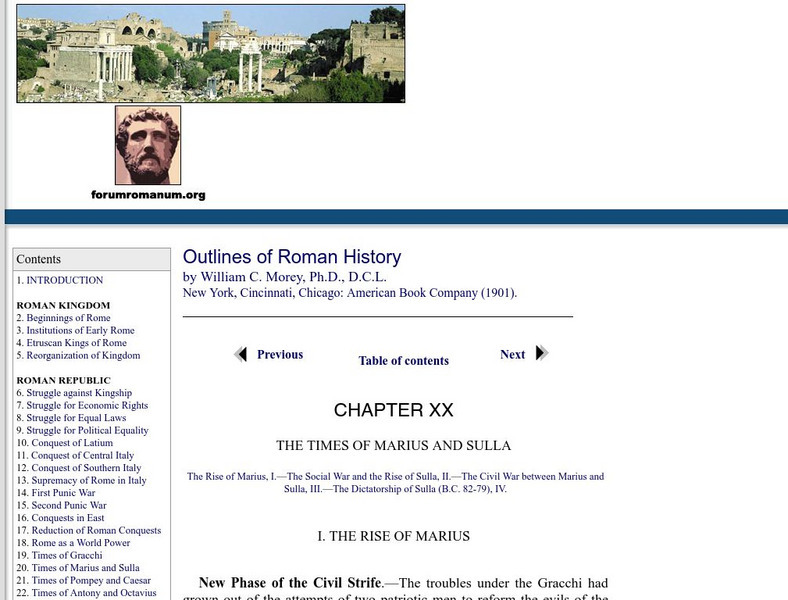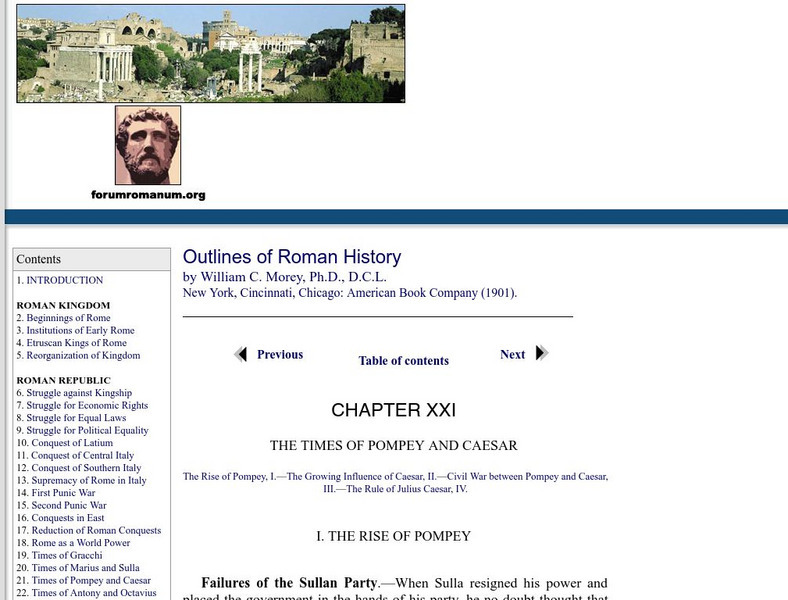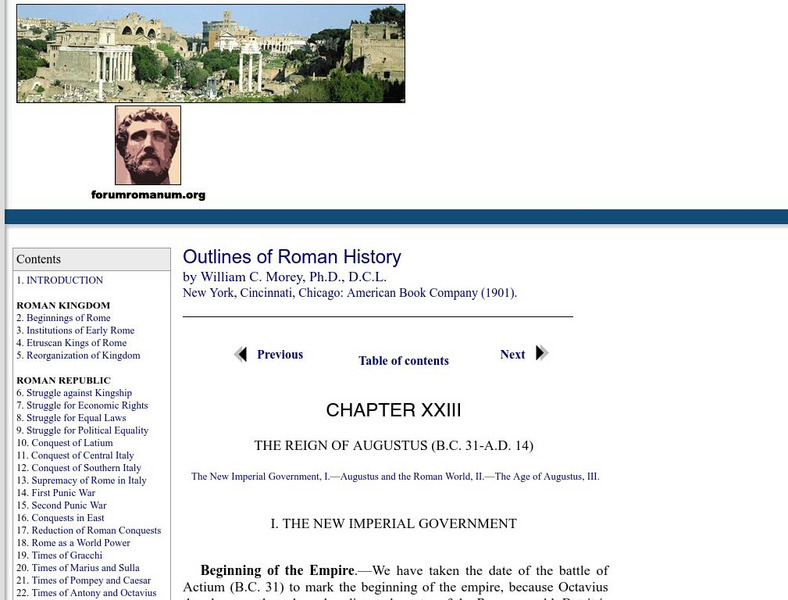Curated OER
To Be or Not to Be Democratic
Seventh graders explore the democratic republic principles of U.S. government. In this U.S. government activity, 7th graders compare and contrast the governments of ancient Athens,the Roman Republic, and the United States today. Students...
Forum Romanum
Outlines of Roman History: Struggle Against the Kingship
The Romans cast off their Etruscan kings and create a new Republic, incorporating many of the governmental ideas from the Etruscans into their new government.
Forum Romanum
Outlines of Roman History: The Contest for the Consulship
The Roman Republic continues to evolve, incorporating plebeians into the government. New offices are added to the government in an attempt to keep both the patricians and plebeians satisfied.
Forum Romanum
Outlines of Roman History: Events Following the First Punic War (Bc 241 218)
With the end of the First Punic War, Rome acquired new territory which she organized into provinces.
Forum Romanum
Outlines of Roman History:reduction of Macedonia and Greece
As Rome expands her boundaries, she has to figure out how to treat the conquered lands. This site shows Rome trying different options and finally settling on the idea of provinces.
Forum Romanum
Outlines of Roman History: Pacification of the Provinces
Rome cannot rest after conquering lands. With often brutal methods, she subdues and consolidates her conquests, and perfects the province system. A slave revolt in Sicily, though, is an indication of problems to come.
Forum Romanum
Outlines of Roman History: Roman Government
Find out how Rome evolves from a democratic republic to a government controlled essentially by the wealthy. It works for a long time.
Forum Romanum
Outlines of Roman History: Rome and the Provinces
Rome's great strength was her brilliance in governing. Read how she organized and governed her provinces. The "law of nations", ius gentium, evolved into consistent justice throughout Roman lands.
Forum Romanum
Outlines of Roman History: Times of the Gracchi: Causes of Civil Strife
In a chapter from William Morey's 1901 textbook, he explains the make-up of the Roman populus at the beginning of the Late Republic.
Forum Romanum
Outlines of Roman History: Times of Marius and Sulla: Rise of Marius
In this section of a chapter in William Morey's 1901 textbook, you will find out about Marius and his reorganization of the Roman army.
Forum Romanum
Outlines of Roman History: The Social War and the Rise of Sulla
Read this passage from William Morey's 1901 textbook to learn about the social war and Sulla's part in it.
Forum Romanum
Outlines of Roman History: Times of Marius and Sulla:dictatorship of Sulla
In this section of a chapter in William Morey's 1901 textbook, you'll discover the changes Sulla made in the government of Rome.
Forum Romanum
Outlines of Roman History: The Growing Influence of Caesar
When reading this passage from William Morey's 1901 textbook, you'll find out about the beginnings of Julius Caesar's power in the Roman Republic.
Forum Romanum
Outlines of Roman History: The Rule of Julius Caesar
Read about Julius Caesar's reforms of the Roman government in this passage from William Morey's 1901 textbook.
Forum Romanum
Outlines of Roman History: Augustus and the Roman World
William Morey, in his 1901 textbook, explains Augustus' administration of the three parts of the Roman Empire, Rome, Italy, and the provinces.
Steven Kreis, PhD
The History Guide:republican Rome Struggle of the Orders
This site from The History Guide provides a comprehensive discussion on the struggle of the orders, the conflict between the plebeians and patricians of the early Roman Republic.




